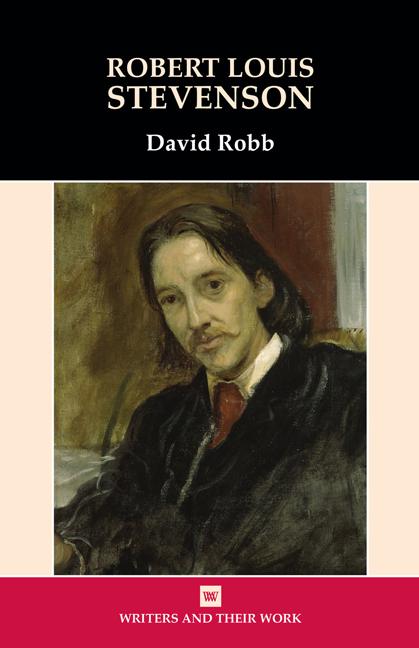Book contents
- Frontmatter
- Dedication
- Contents
- Acknowledgements
- Biographical Outline
- Abbreviations and References
- 1 Introduction: Travels With and Without a Donkey
- 2 ‘A brilliant and romantic grace’
- 3 ‘So easily the master of us all’
- 4 ‘Voices in the Darkness’
- 5 ‘Under the wide and starry sky’
- Notes
- Select Bibliography
- Index
5 - ‘Under the wide and starry sky’
- Frontmatter
- Dedication
- Contents
- Acknowledgements
- Biographical Outline
- Abbreviations and References
- 1 Introduction: Travels With and Without a Donkey
- 2 ‘A brilliant and romantic grace’
- 3 ‘So easily the master of us all’
- 4 ‘Voices in the Darkness’
- 5 ‘Under the wide and starry sky’
- Notes
- Select Bibliography
- Index
Summary
Stevenson's short poem ‘Requiem’ is one of the best known and most frequently quoted of his verses but of its eight lines only the first has no reference to death and the grave: read on its own, the line suggests exhilaration, a love of beauty, and openness to the world and to experience. Whereas Stevenson's contemporaries and the immediately succeeding generation saw his early death as a prominent part of his story, today's readers and critics are surely more likely to be conscious of the extent and variety of his highly productive career. Our overriding sense of him as a writer is of brilliance, of copiousness, of the constantly unexpected and of a seemingly natural grace. It is vitality we associate with him, rather than mournfulness – even while we might regret the absence of what further decades could have produced. Stevenson would appear to embody, as well as anybody, the immortality which a great writer can achieve. His reputation among academic critics (to use the simplest phrase) may have died for a while after his death, but it has come back to life again and looks set to remain vital for the foreseeable future. He is now regularly discussed once more as one of the leading authors of his age, whether the critic brings to bear a concern with the historical, social, or psychological circumstances of the period, or is concerned with questions of writerly craft, technique, or theory, or is enlivened by a nationalist point of view. There is a sense, however, in which the scholars and critics are merely catching up with ordinary readers and with other practising writers, who have never ceased to find in Stevenson's works pleasure and high achievement. James Robertson has usefully surveyed the fall and rise of his reputation – a leading Scottish novelist acknowledging a great predecessor.
If Stevenson is now held once more in high regard, there is nevertheless a continuing variability, an unsettled quality, in more particular matters relating to him. For one thing, his life and personality continue to interest equally with his writings.
- Type
- Chapter
- Information
- Robert Louis Stevenson , pp. 140 - 143Publisher: Liverpool University PressPrint publication year: 2014



